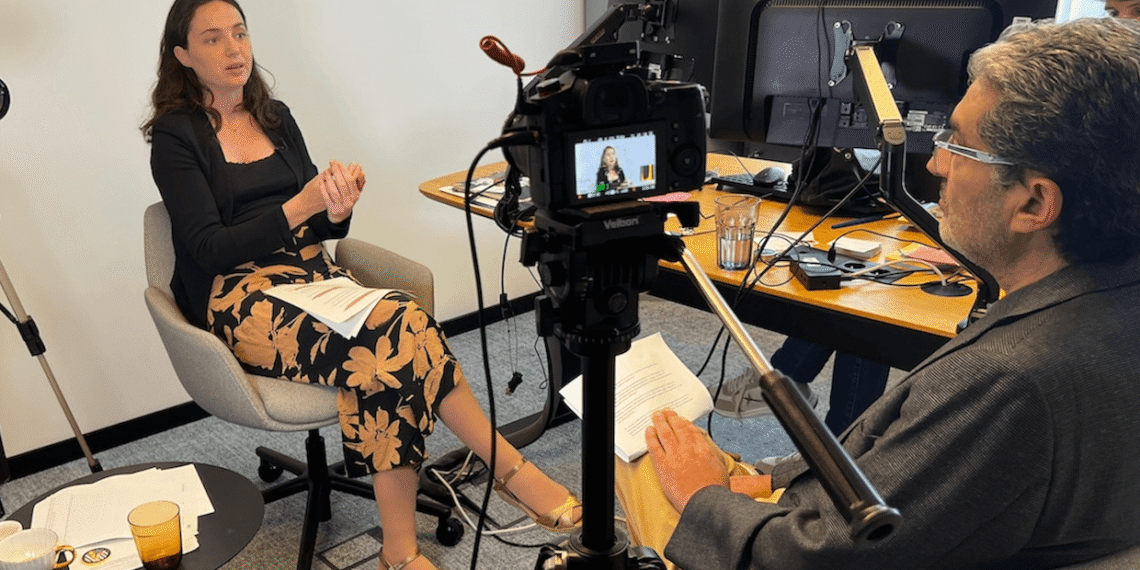In an exclusive interview with ECPS, MEP Chloé Ridel, rapporteur for the European Parliament’s forthcoming report on transnational repression, underscores the urgent need for the EU to confront transnational repression—state-organized efforts by authoritarian regimes such as Russia, China, Turkey, and Iran to silence critics abroad. Ridel calls for expanding the EU’s Global Human Rights Sanctions Regime to explicitly include transnational repression and highlights the procedural challenge posed by unanimity voting: “The only people we manage to sanction are mostly Russian… we will have difficulties applying the values we believe in.” She stresses that this is a human rights, security, and democratic issue requiring coordination, oversight of enablers, and stronger protection for vulnerable groups.
Interview by Selcuk Gultasli
In a context of intensifying authoritarian encroachment beyond national borders, transnational repression has emerged as a growing threat to Europe’s democratic integrity, sovereignty, and human rights commitments. Authoritarian regimes—including Russia, China, Turkey, and Iran—have refined techniques of intimidation and control targeting exiles, dissidents, and diaspora communities residing in democratic states, employing legal tools such as Interpol Red Notices, coercion-by-proxy against relatives, and increasingly sophisticated forms of digital harassment. In her capacity as rapporteur for the European Parliament’s forthcoming report on transnational repression, MEP Chloé Ridel of the Socialists and Democrats Group has foregrounded the urgency of a robust, coordinated European response.
In this interview with the European Center for Populism Studies (ECPS), MEP Ridel makes a compelling case for expanding the EU’s Global Human Rights Sanctions Regime to address transnational repression explicitly. She explains that “there is already an EU sanctions regime that exists, and we want this regime to also apply to states that commit transnational repression.” MEP Ridel’s recommendation is clear: the EU must recognize transnational repression as a distinct pattern of authoritarian interference, codify it in sanctions policy, and ensure it can be enforced consistently across Member States.
MEP Ridel is also critical of the procedural obstacles that blunt the effectiveness of EU sanctions, pointing to the unanimity requirement that has resulted in skewed enforcement patterns: “The only people we manage to sanction are mostly Russian; 70% of those sanctioned under the EU sanctions regime are from Russia.” Without reforms enabling qualified majority voting for sanctions decisions, she warns, “we will have difficulties applying the values we believe in on human rights.”
This approach, MEP Ridel emphasizes, is inseparable from broader efforts to coordinate intelligence, protect vulnerable groups such as women, human rights defenders, and hold enablers—particularly social media platforms—accountable. “States rely on enablers such as social media platforms and spyware businesses, and these enablers must also be held accountable,” she argues. In advocating for expert focal points on transnational repression in both EU delegations and national administrations, Ridel calls for the EU to develop institutional expertise to “help victims of transnational repression” who often “don’t even know they are victims” until attacked.
This interview provides an incisive analysis of the tools and frameworks required to confront transnational repression effectively. EP rapporteur Ridel’s proposals offer a principled roadmap for embedding human rights and democratic sovereignty at the heart of EU foreign and security policy.


